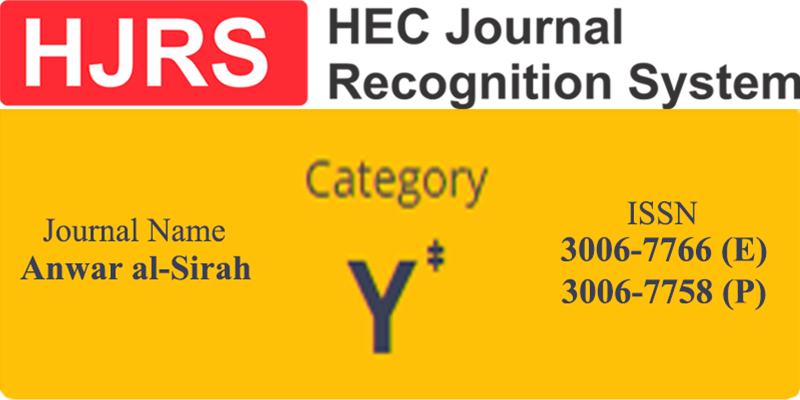حقوق نسواں کانبوی تعلیمات کی روشنی میں تحقیقی مطالعہ
Research Study on Women's Rights in the Light of Prophet Teachings
DOI:
https://doi.org/10.5281/zenodo.13778793Keywords:
Women’s rights, Historical comparison, Alimony, Marriage, Seerah al-Nabviah, Islamic TeachingsAbstract
History testifies that women were oppressed for a long period of time. Greece, Egypt, Rome, in every nation and in every continent, women were tyrannized. Men would buy and sell the women to fulfil their own pleasures of life. The Arabs even considered the women a cause of shame and used to bury the young girls alive. No social status was given to the women in most of the world's civilizations. Islam not only gave women the right to survive but also determined their status as a mother, daughter, wife and sister. By confirming their religious, social, economic, legal and administrative role, Islam guaranteed their rights. As a result, a civilization was created in which women were considered an important part of the society. The Prophet ﷺ elevated women to the highest possible level of dignity and greatness. The women were also entitled to the rights of dower, alimony, respect and honor. As mothers, they were conferred a great status and paradise was laid under their feet. The obedience of one’s mother was made the source of success in this world and the hereafter. Islam instructed to make sure a proper upbringing and education for women as daughters. It acknowledged their right of property and intervention in this right was held to be unlawful. It set the stoning and other adultery punishments for criminals in order to protect chastity and honour of women.Their testimony was acknowledged as rightful. They were allowed to preach the religion of Islam. The importance of women's rights in the foundation of the modern Muslim state is recognized as true, provided that the establishment and provision of the rights are in accordance with the Islamic teachings. In this article, women’s rights will be described in the light of Islamic teachings.
Downloads
Published
How to Cite
Issue
Section
License
Copyright (c) 2024 Rehana Kanwal

This work is licensed under a Creative Commons Attribution-NonCommercial 4.0 International License.
Copyrights of all research papers published in Journal of the 'ANWĀR AL-SĪRAH are held by the auther(s). However, as the 'ANWĀR AL-SĪRAH follows Open Access Policy under license CC by NC for global exchange of knowledge, readers are freely allowed to download, read and print the full text papers of 'ANWĀR AL-SĪRAH without prior permission from the 'ANWĀR AL-SĪRAH or the author(s) as long as they acknowledge/cite the 'ANWĀR AL-SĪRAH as the original source.


